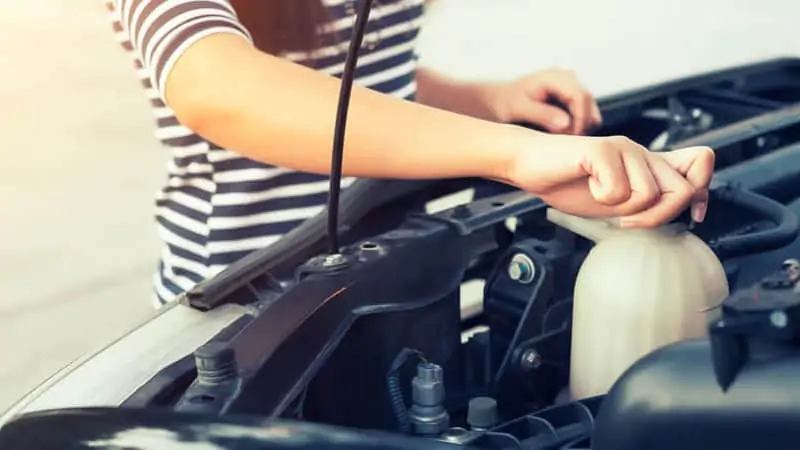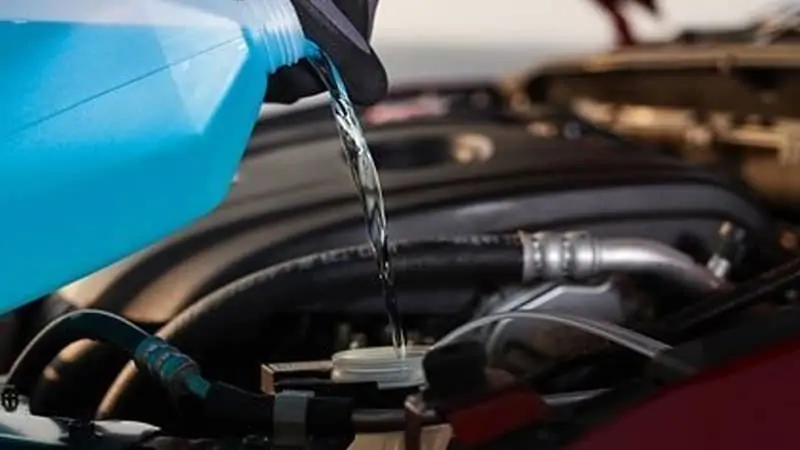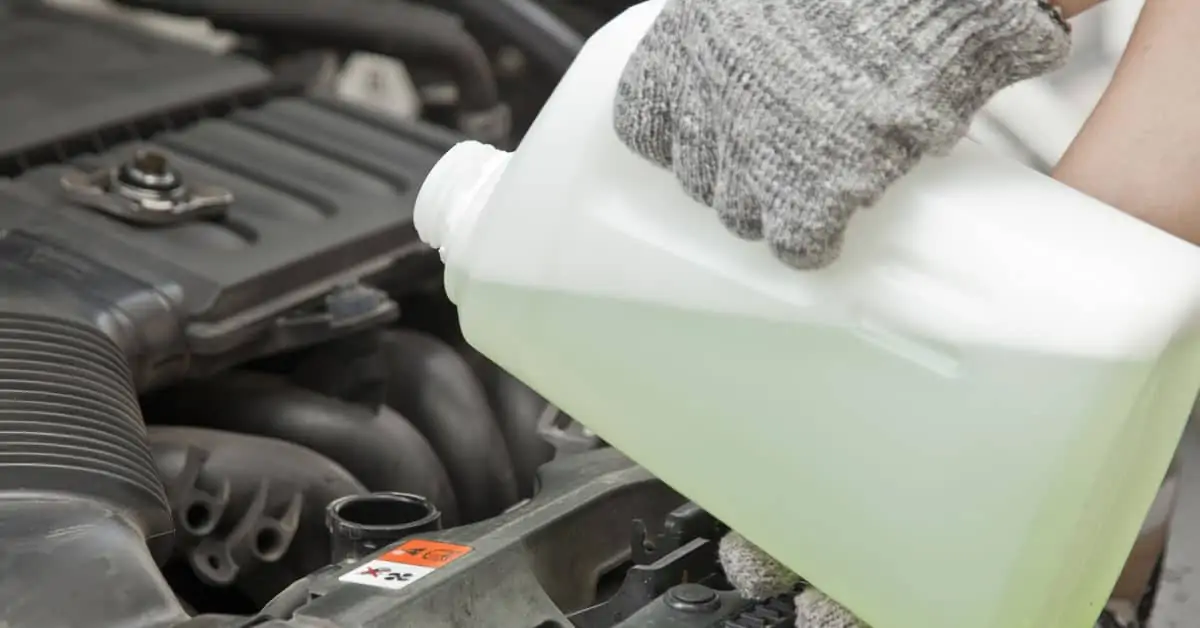In case you don’t know, there are eight main types of fluids under the hood of a car. They include motor oil, gasoline, transmission fluid, power steering fluid, coolant (antifreeze), brake fluid, wiper fluid, and air conditioning refrigerant. The engine coolant is arguably the most important fluid under the hood of a car.
Also, the engine coolant is the most overlooked fluid under the hood of a car, as it doesn’t need constant replacement like oil, gasoline, and a few others. Coolant or antifreeze has a direct impact on your car engine. Its primary function is to help maintain the temperature of the engine, keeping it from overheating.
Furthermore, low coolant can also cause the head gasket on your car engine block to blow. But here’s a burning question, does the coolant have any effect on the car air conditioning?
Your engine coolant doesn’t have any direct effect on the car’s air conditioning. The two terms are different. The work of the antifreeze is to prevent the engine from overheating. On the other hand, your car’s air conditioning utilizes refrigerant (usually called Freon) to keep the inside of your car cool.
Having gone through various social media platforms and forums, some of the frequently asked questions about car AC units are; does engine coolant affect air conditioning? How do I know if my car AC needs coolant? Is it possible for low coolant to affect car AC? In case you’re also interested in getting answers to any of the burning questions above, all you need to do is to read on.
Does Engine Coolant Affect Air Conditioning?

Before going ahead to answer this question, let me start by talking about the functions of the engine coolant and air conditioning. Doing that will enable us to better understand whether or not both systems have anything in common.
How does an engine coolant work?
So, what is an engine coolant and how does it work?
As previously mentioned, a coolant, otherwise called antifreeze, is a fluid that runs through your car engine. Its purpose, as you already know, is to maintain the temperature of your engine, preventing it from overheating.
For the coolant to perform its job, it has to run in a continuous cycle inside the engine. In case you don’t know, one of the essential components of your car engine is the outer casing, called the Water Jacket.
The coolant flows through the jackets into the engine, to maintain the temperature and prevent overheating. That’s not all; the antifreeze further flows through hoses to the radiator – this is where it finally cools down.
What is car air conditioning (AC)?
An air conditioning system is designed to help cool the inside of a car. It has three main components; the compressor, the condenser, and the evaporator. Furthermore, for your AC system to cool the interior of your car successfully, it needs a coolant, called refrigerant. The most commonly used refrigerant in cars is the R-134a Freon.
All the three key components of the AC system all work hand in hand, transporting Freon through a low/high-pressure closed-loop system, to cool the inside of your car.
Now, let’s go back to the burning question of whether or not the engine coolant can affect the AC.
The answer to the question is no; the engine coolant doesn’t have any direct effect on the AC. However, it has indirect effects, which could arise as a result of engine issues.
How Do I Know If My Car AC Needs Coolant?

The air conditioning system needs refrigerant, also known as coolant, to be able to perform its job effectively. That said, here’s a burning question; what are the warning signs to know that the AC system needs coolant (Freon)?
One of the few signs that you’ll get to understand that your air conditioning needs Freon is when the system starts blowing room temperature air.
The AC system needs a sufficient amount of refrigerant to move back and forth. So, with a low Freon level (the absence of adequate coolant), the air conditioning will fail to perform up to expectation. That’s why it sometimes blows you warm air, instead of cooling the interior of your car.
Furthermore, another warning sign that you’ll get to understand that the AC system needs coolant is when the clutch fails to give a click sound.
Have you ever noticed; when you switch your car’s air conditioning system, it often gives a click sound, establishing that the clutch is already engaged? Yes, the system does that when there is sufficient coolant.
Bottom line: any time you turn on your AC and notice that the clutch isn’t giving any clicking sound, this could be a warning sign that the Freon level of the system is pretty low.
That’s not all; another common warning sign that you’ll get to understand that your AC system needs coolant is when there’s a visible refrigerant leak.
First, you need to understand that this issue doesn’t always happen. However, when it happens, it’ll affect the performance of the AC. Furthermore, a refrigerant leak often occurs under the hood of your car. When it happens, a thin greasy substance often surfaces around the compressor.
The best way to address the problem is to contact an ASE-Certified technician and have him check and address the issue for you.
Can Low Coolant Affect Car AC?
In case you don’t know, there are several different types of coolants in a car. So far, I have been able to talk about two of them; engine coolant and refrigerant. That said, here’s another burning question; is it possible for low coolant to affect your car AC?
The answer to the question is yes; low refrigerant (Freon) will certainly reduce the performance of your car AC.
A low-level Freon could cause your AC system to deliver warm air inside your car. It’ll most likely also prevent the clutch from engaging and I’m giving you clicks.

